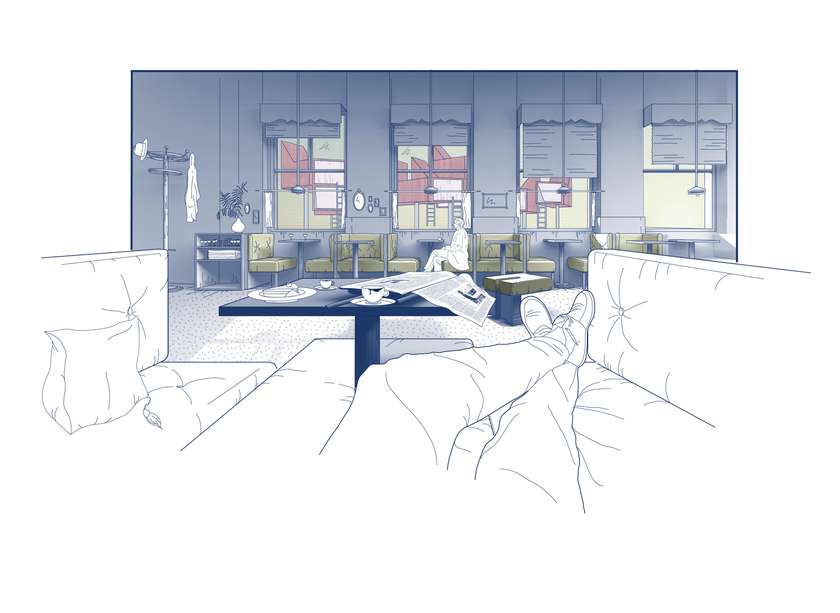Idea by
Jerome Becker; Florian Sammer; Lukas Vejnik
Bedroom Exodus
http://cargocollective.com/bedroomexodus
Call for ideas 2016
Bedroom Exodus
Bedroom Exodus
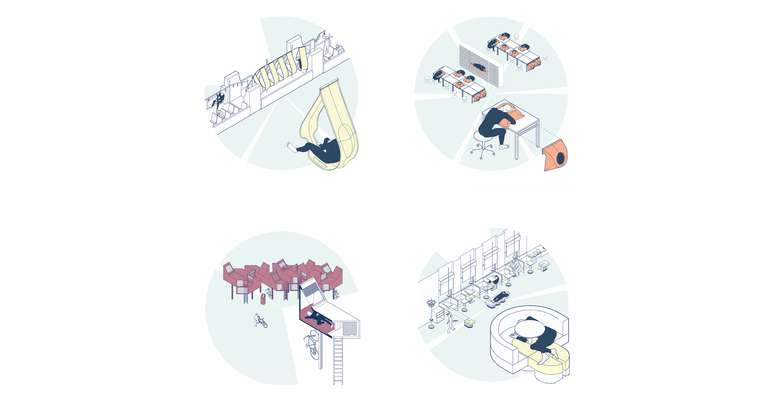
While rhythms of work and entertainment today are more and more disconnected from a fixed schedule our sleep habits haven't changed a lot since the first industrial revolution. In densely populated urban territories, the tendency towards a 24-hour society can not be neglected. The main concept of housing today thus ignores the potential of the omnipresent provision of service. Every want can be supplied outside of our homes. Only the necessity of sleep interrupts this constant flow. Bound to our beds, we turn home in a strict rhythm to get the daily dose of drowse. To avoid the embarrassing situation of turning back home several times a day for a nap, the adaptation of sleeping culture in the polyphasic city is based on the liberation of sleep from one specific place. A network of sleep-infrastructure creates a new urban layer and makes a polycentric habitation of the city possible. Sleep is no longer banned to the one and only private bedroom.
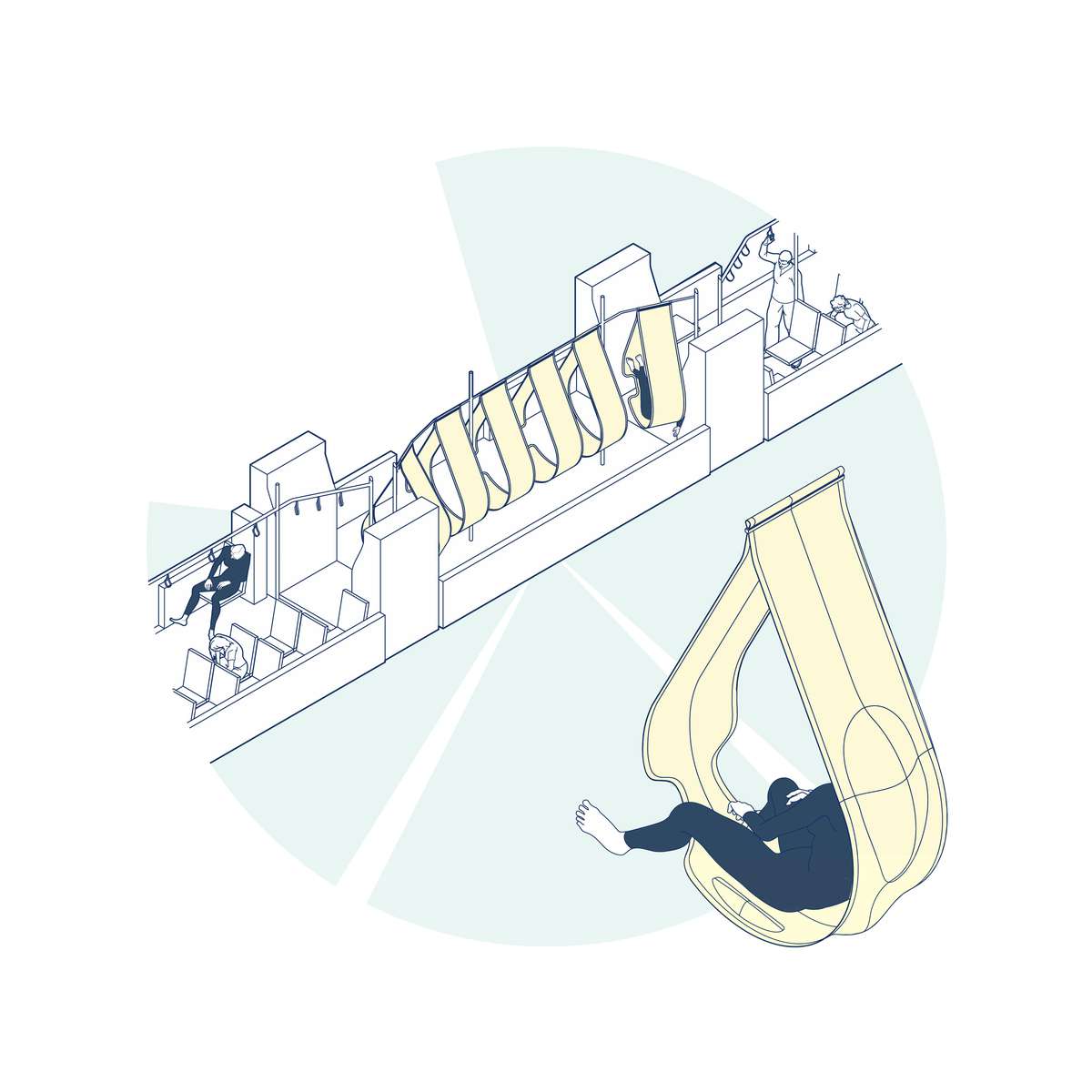
slings to nap in carriages of commuter trains
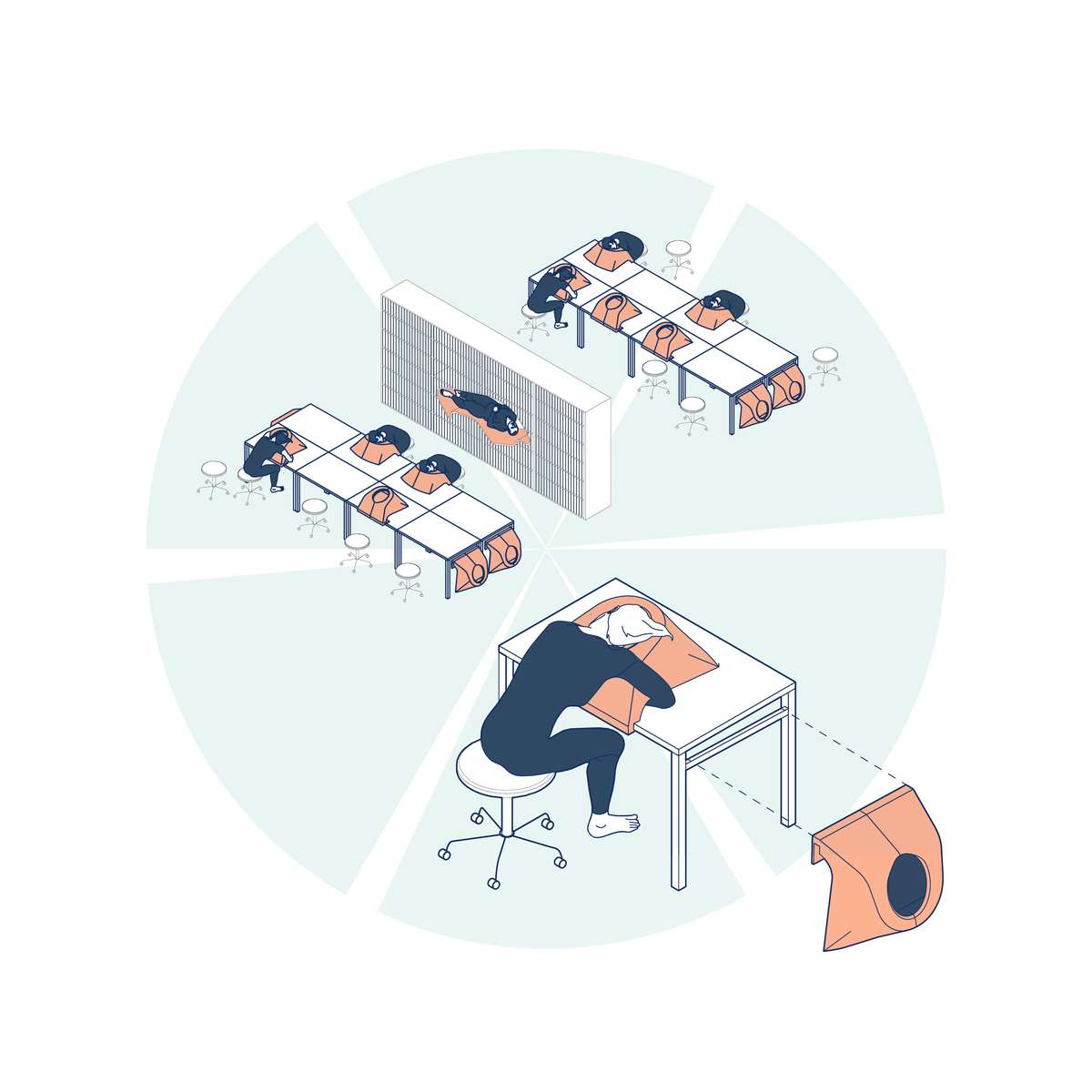
portable sleep utensils and sleeper shelves in libraries
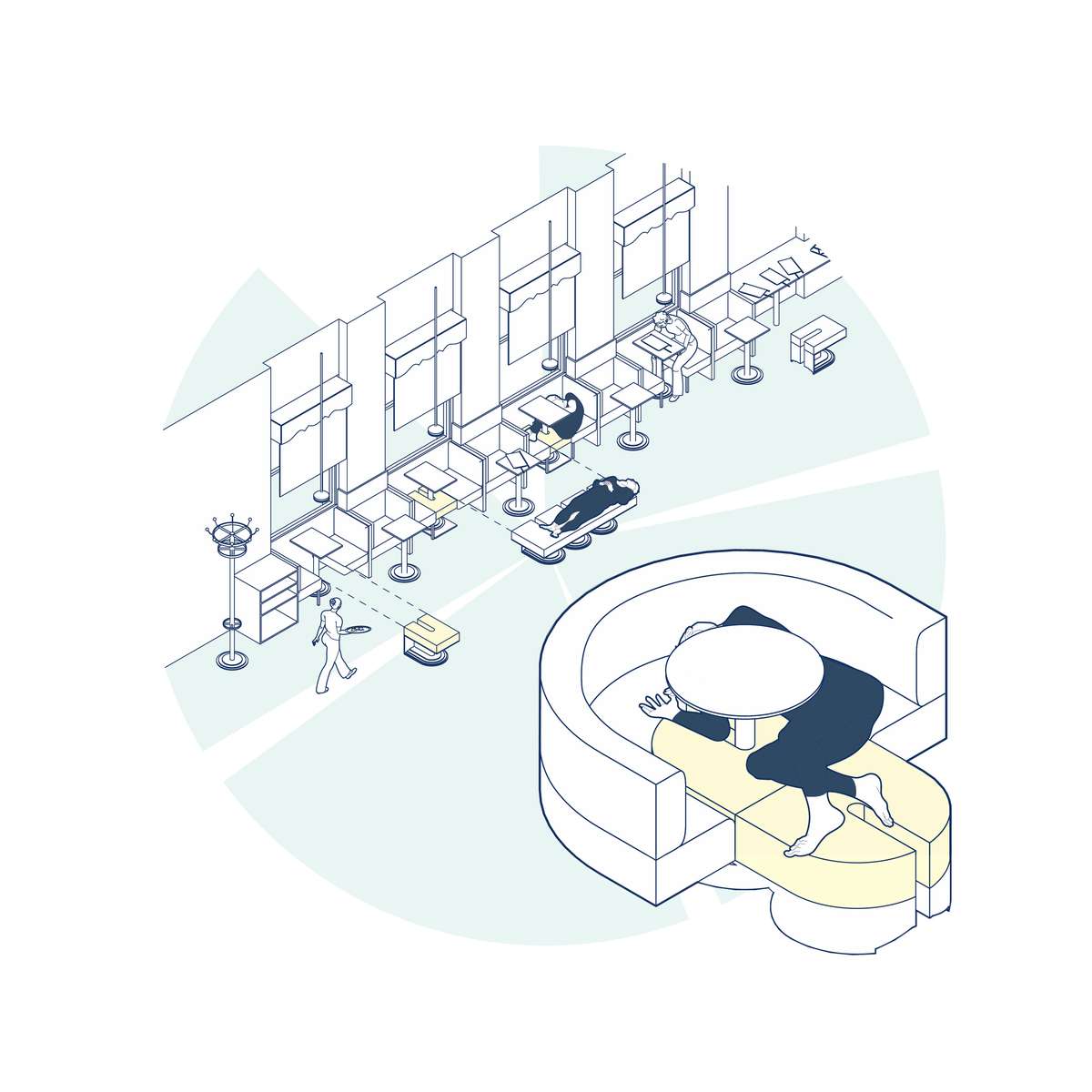
stool prostheses as extensions of coffeehouse furniture
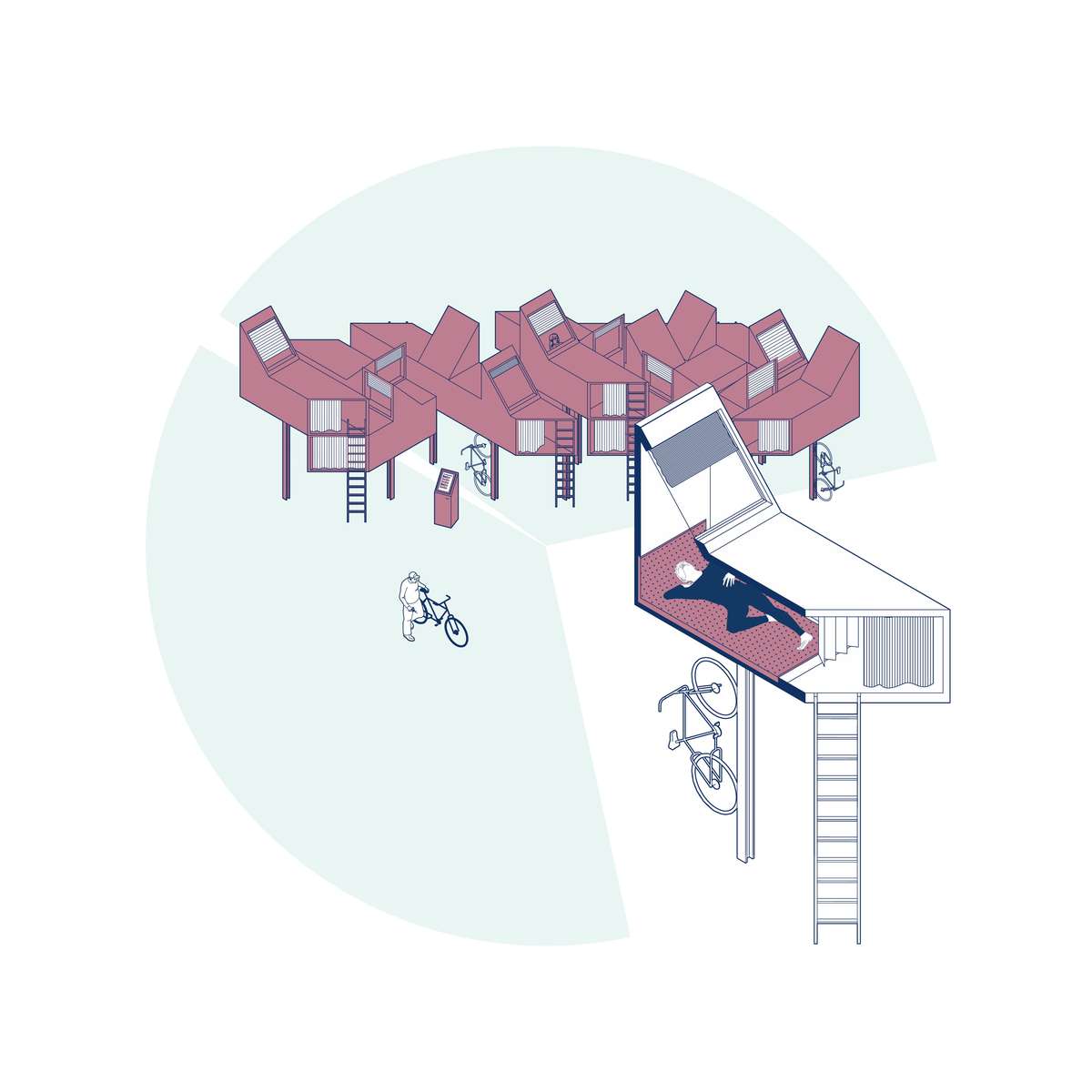
nap stations combined with bike racks
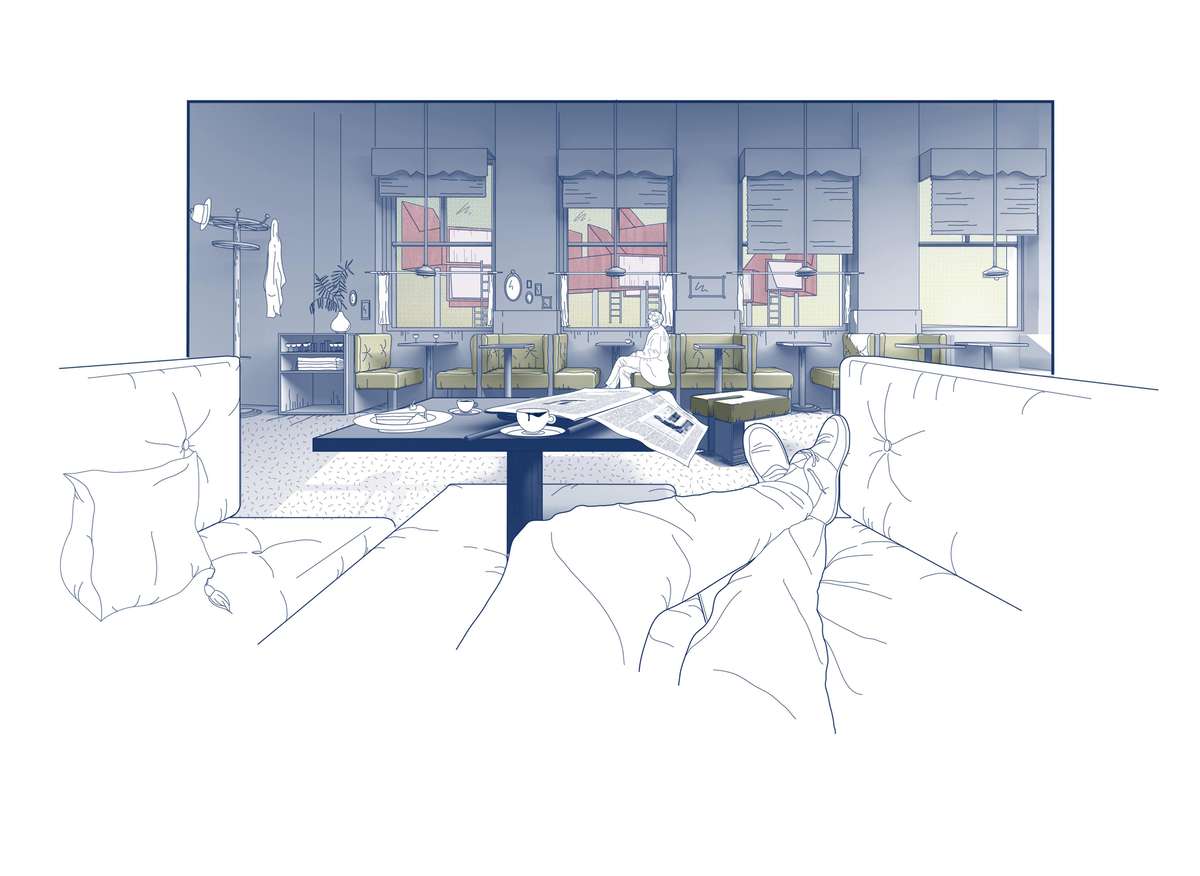
Bedroom Exodus
Bedroom Exodus

While rhythms of work and entertainment today are more and more disconnected from a fixed schedule our sleep habits haven't changed a lot since the first industrial revolution. In densely populated urban territories, the tendency towards a 24-hour society can not be neglected. The main concept of housing today thus ignores the potential of the omnipresent provision of service. Every want can be supplied outside of our homes. Only the necessity of sleep interrupts this constant flow. Bound to our beds, we turn home in a strict rhythm to get the daily dose of drowse. To avoid the embarrassing situation of turning back home several times a day for a nap, the adaptation of sleeping culture in the polyphasic city is based on the liberation of sleep from one specific place. A network of sleep-infrastructure creates a new urban layer and makes a polycentric habitation of the city possible. Sleep is no longer banned to the one and only private bedroom.
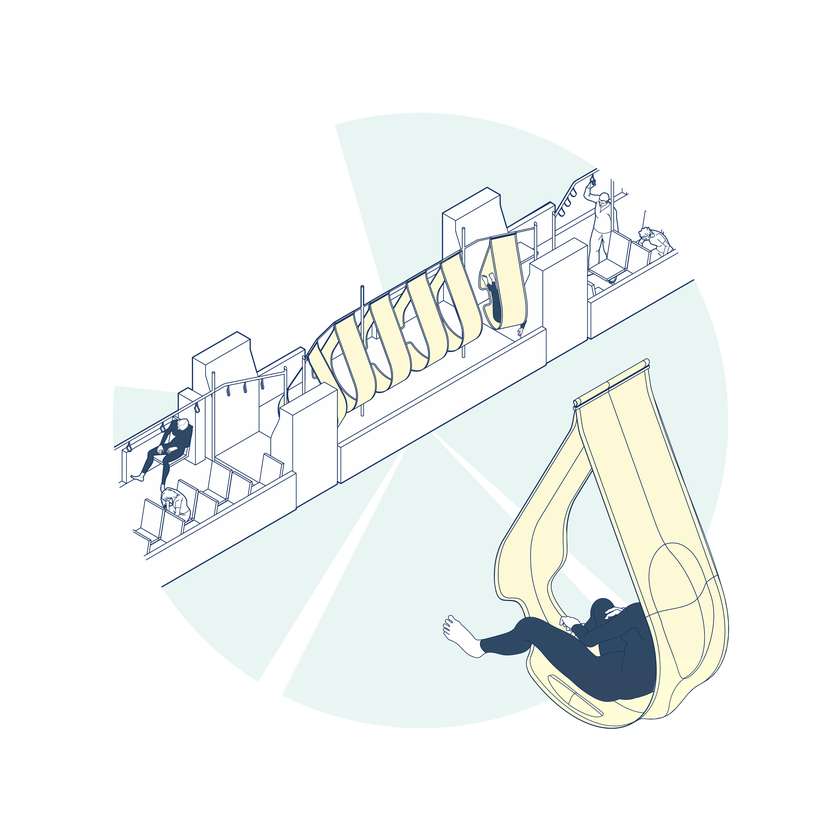
slings to nap in carriages of commuter trains
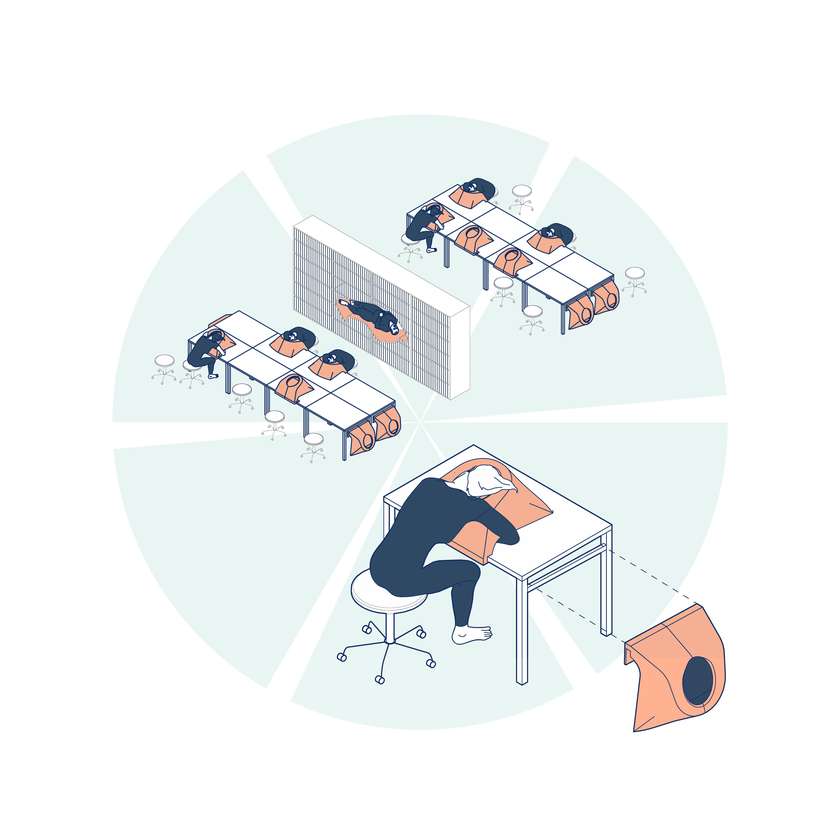
portable sleep utensils and sleeper shelves in libraries
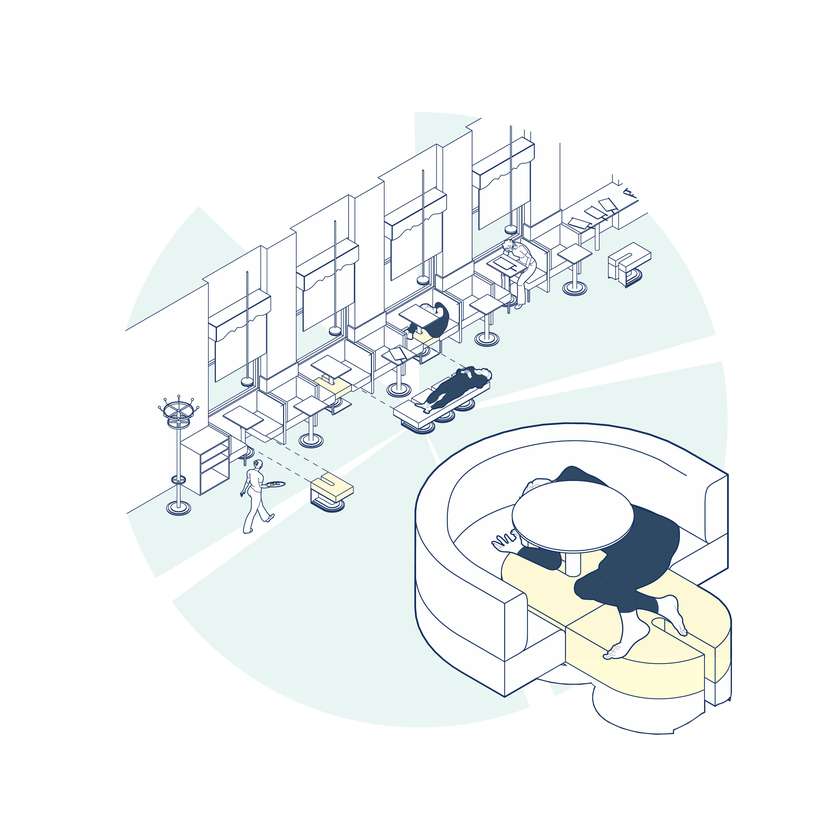
stool prostheses as extensions of coffeehouse furniture
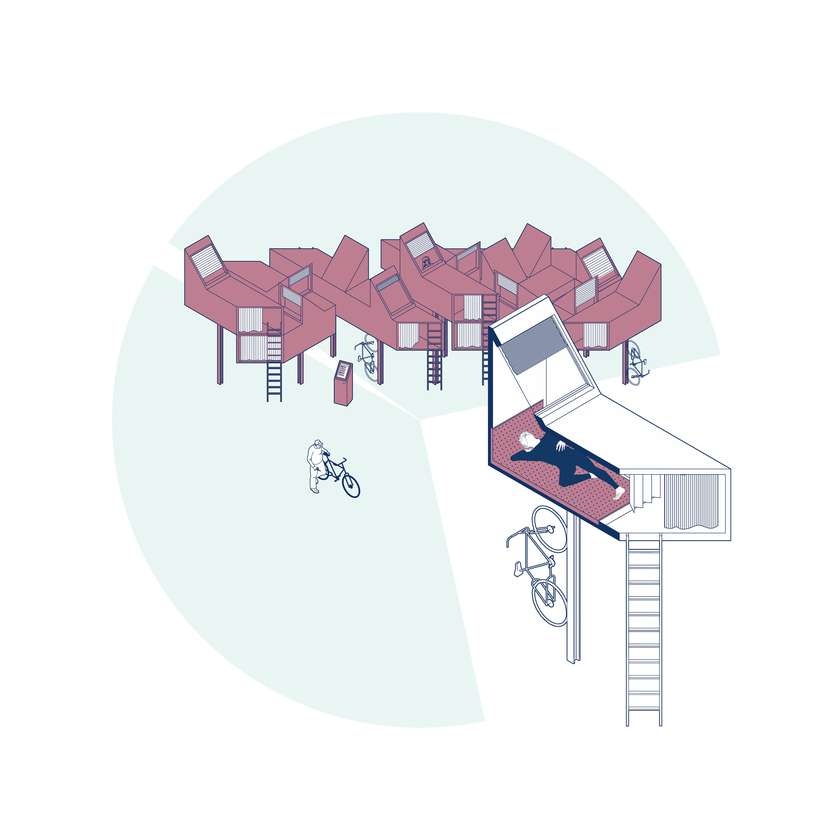
nap stations combined with bike racks
